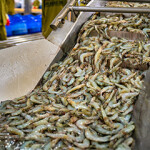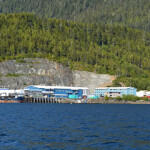Chile will provide vessel data to Global Fishing Watch
The government of Chile has signed an agreement to make its national vessel tracking data publicly available through the Global Fishing Watch (GFW) map in order to improve transparency for its fishing industry.
In a joint statement made by Chile’s National Fisheries and Aquaculture Service (Sernapesca), international conservation group Oceana and the GFW, officials confirmed that tracking information on more than 1,500 commercial vessels will be available in near real-time.
The announcement follows a modernization of Sernapesca, which included parameters for a national Vessel Monitoring System (VMS) for fishing vessels. Officials see this development as an important element in fighting illegal fishing activities.
“President [Sebastián] Piñera’s government program instructed us to redouble our efforts to fight illegal fishing and work for the adequate management and sustainability of fishery resources,” Sernapesca National Director Alicia Gallardo said. She added that part of her goru's strategy is to encourage citizens and other players to get involved in the protection of its oceanic resources.
The statement said the announcement was the fruit of an extended campaign by Oceana, which “has been working for many years to increase transparency in the fisheries sector and to establish large marine parks,” Liesbeth van der Meer, vice president of Oceana Chile, said.
The data will include information from the 700 fishing vessels and the 800 vessels that provide aquaculture support. The general public can view the information, as well as governments, fishery managers, seafood buyers, researchers, and NGOs.
Global Fishing Watch, in partnership with Oceana and other organizations, is committed to working with 20 countries to publicly share their vessel monitoring data via the GFW map by 2022 to advance responsible fisheries management.
GFW CEO Tony Long said the system is a "cost-effective and efficient way to enhance vessel monitoring.”
“Chile continues to demonstrate its position as a global leader in ocean protection and responsible fisheries management,” Long said. “In 2017, Indonesia became the first nation to make its proprietary VMS data available via GFW’s platform – instantly putting 5,000 smaller commercial fishing vessels that do not use AIS on the map. Peru followed in October 2018 in sharing its VMS data, and Costa Rica, Panama, and Namibia have made public commitments to join the GFW platform."






Share